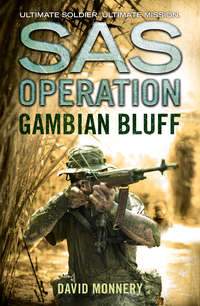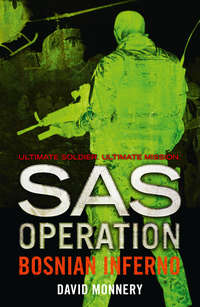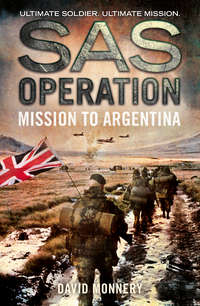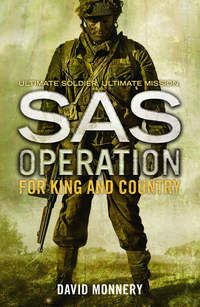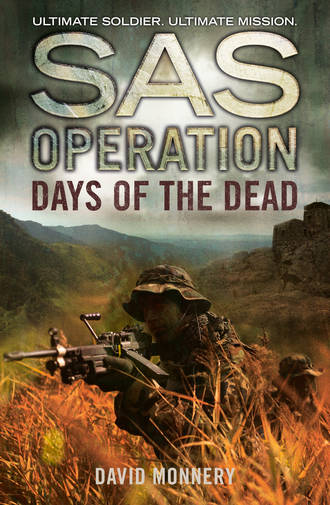
Полная версия
Days of the Dead
She read on, but there was nothing else, no mention of the other three, no mention of her sister.
‘Could you take a picture of us, dear?’ someone asked, disturbing her reverie. It was one of the Englishwomen, with her husband hovering behind her. Carmen nodded dumbly, climbed down from the bus, pointed the camera and pressed the button, still in a state of shock.
‘Are you all right, dear?’ the woman asked, a concerned look on her face.
‘Yes, I’m fine,’ Carmen replied, smiling. ‘It’s been a long day.’
‘Well, you’ll soon be rid of us for the night,’ the woman said with a twinkle.
Carmen smiled again, and looked at her watch. Ten minutes more.
They went slowly, but everyone was on time. On the drive back to the hotel she went through the next day’s itinerary – they were visiting the nearby Corales del Rosario National Park – and then asked the Pearsons if she could borrow their newspaper for the evening to help brush up her English.
Mr Pearson seemed a bit reluctant, but his wife was only too happy, probably seeing it as a down payment on their continued tenure of the best seats. At the hotel she counted them all out, remembered to re-check the next morning’s pick-up time with Mariano, then headed for a phone. Pinar was upset that their evening at the cinema was off, but she could tell from Carmen’s voice that something serious had happened. ‘I’ll tell you later,’ Carmen explained, and rang her parents’ home. Her mother answered.
‘I’m coming up,’ Carmen told her. ‘I have to talk to you both.’
‘But we’re going out at eight…’
‘Just wait for me,’ Carmen insisted. ‘It’s about Marysa.’
‘What about her?’ her mother asked, sounding almost angry.
‘I’ll tell you when I get there.’
It was an hour’s journey on the bus, maybe even more at that time of day, so she decided on the luxury of a cab, as much for the privacy as the gain in speed. It had seemed the most natural thing in the world to immediately ring her parents, but the tone of her mother’s voice had given Carmen cause to wonder. Should she have sat on this information for a few hours, thought about what she wanted to do with it, before putting herself at the mercy of her father’s stubbornness and her mother’s selfishness? What were they going to say to this? The last time she’d raised the issue with them they’d both been really angry with her, as if somehow it was her fault that their other daughter had been taken from them.
The trouble was, their instinctive approach to anything potentially disturbing was to ignore it, in the hope that it would go away. And it worked for them, or at least it did in the sense that they managed to avoid most of the disturbance which other people called living. But it had never worked for Carmen.
The traffic seemed worse than ever, but shortly after seven the taxi deposited her at the foot of the bougainvillea-bordered drive. Her parents were fairly rich by legal Colombian standards, her father having inherited the family footwear business. It was the combination of this wealth and the lack of a ransom demand which had eventually convinced them all to accept the police investigator’s conclusion that Marysa was dead.
They had likewise assumed that Placida Guzmán and Victoria Marín were dead. And Irma. And Rosalita.
Carmen let herself in through the front door, and a few moments later found her parents putting the finishing touches to their evening’s apparel in the enormous bedroom.
‘Oh, I wish you wouldn’t tie your hair back like that,’ were her mother’s words of greeting. ‘Can’t you afford a proper styling?’
‘I don’t want a proper styling,’ Carmen said, running a hand over her severely pinned black mane.
Her mother just looked at her.
Carmen laid the newspaper out in front of her on the dressing table. ‘Read that,’ she ordered, pointing out the item with a finger.
Her mother sighed and started reading, still fiddling with her earrings as she did so. Then her hand suddenly stilled, leaving the filigree ornament swaying in mid-air. ‘Oh, my God,’ she said softly.
‘What is it?’ her husband asked, leaning over her shoulder to read.
‘Guzmán and Marín are common names,’ Carmen’s mother said in a small voice, as if she was arguing with herself.
‘Not that common,’ Carmen said gently. ‘And Victoria Marín and Placida Guzmán together – it’s too much of a coincidence. It even says that Victoria is twenty-three, which would be right.’ She looked at her parents, both of whom seemed to have been suddenly aged by the news. ‘Don’t you understand?’ she said. ‘This means there’s hope.’
‘We understand,’ her father said, and the look in his eyes seemed to add: we’ve lost her once and now we’ll get the chance to lose her all over again.
Carmen felt like slapping them both. ‘So what are you going to do?’ she asked her father abruptly.
He looked at her for a moment. ‘Talk to the Chief of Police, I suppose, and get him to contact the police in Miami.’
‘Don’t you think you should go there yourself? I’ll come with you,’ she added – his English had never been good.
He shook his head. ‘The police in Miami are more likely to listen to a fellow-officer than a Colombian civilian.’
Which might well be true, she thought. ‘So will you call now?’
He smiled wryly. ‘He won’t be in his office.’
‘His home then.’
‘I don’t have his home number, and even if I did…Carmen, the newspaper article is a week old. Putting the man’s back up to save a few hours is not worth it.’
‘And we’re going to be late,’ his wife added, earrings finally in place.
‘You’re still going out?’
‘What do you expect us to do – spend the evening wringing our hands?’ her mother asked.
‘No, I suppose not, but…You will ring first thing in the morning?’
‘I’ll go and talk to him in person.’
‘Good.’ She felt relieved.
‘There’s food in the kitchen if you want some,’ her mother told her, and once they’d gone she toyed with a plate of warmed-up fish risotto for a while before deciding to head back into town.
On the bus she found her mind running through the events of that fateful August. The five young women, all from good families, all in their last year at college, had taken a picnic a few miles down the coast, in an area which had always hitherto been considered safe. In the early afternoon they had been seen by several other picnickers, as well as joggers and courting couples, but after four o’clock the record of sightings came to an end, and the party had not returned to the college that evening.
No suspicious groups or vehicles had been seen in the area, but when after several days the women had still failed to reappear the assumption had grown that a new guerrilla group must be holding them to ransom. Once two weeks had passed without any demand for money being received, the betting had shifted in favour of either some catastrophic and completely unfathomable accident or what seemed an equally improbable mass rape and murder.
Now it seemed likely that they had been in the hands of drug traffickers all this time. Placida was dead and Victoria was ‘unable to help’, whatever that might mean. Where were the other three, and what had their lives been like for the last two years?
The answer to the last question was too horrific to contemplate.
Victoria would know, Carmen thought, and she was more likely to talk to a friend than a gringo policeman. If her father didn’t get anywhere with his contacts, she decided, then she would go to Miami herself, with or without her parents’ blessing, and find out what had happened to Marysa.
Docherty and Isabel didn’t discover the reason for Rosa’s summons until three days after their arrival in Buenos Aires. On that Tuesday Docherty and Rosa’s husband, Giorgio, a second-generation immigrant of Italian descent, had driven to the university, where the media unit’s satellite link-up was being put to good use, showing England’s final group game against Holland in Euro 96. England outplayed the Dutch and Docherty, a true Scot, duly lamented the Auld Enemy’s victory. But as they drove home to Recoleta he had to admit that England seemed to be playing football these days, rather than just kicking it upfield and running after it like headless chickens.
The two men arrived back to find the children running riot in the house while their wives were preparing the ingredients for a barbecue on the patio. Rosa gave the task of igniting the charcoal to Giorgio, collected a bottle of chilled white wine from the fridge and poured glasses for the four of them on the patio table. ‘A toast,’ she said. ‘The future.’
They all drank. Here it comes, Docherty thought.
‘Though it’s the past I want to talk to you about,’ Rosa began carefully. Behind her the evening sun glinted on the waters of the River Plate estuary, and the panorama of Recoleta’s famous brightly coloured houses seemed like a child’s drawing. ‘I have something to ask you – you, Jamie, though of course it concerns Isabel too.’ She sighed. ‘I don’t even know if I should ask you, but I promised I would. And you can always say no.’
His SAS bosses used to say that, Docherty thought.
‘Do you remember Gustavo and Eva Macías?’ Rosa asked Isabel.
‘I don’t think so.’
‘Gustavo was a close friend of my father. He and his family used to visit us quite often when I was a child.’
‘I do remember one friend of your father’s,’ Isabel said. ‘A tall man, stood very straight. He had a beard, I think.’
‘That’s him. He and Eva had three children – two daughters and one son. The son’s name was Guillermo – he was about three years younger than us, I think. I probably didn’t pay much attention to him, but I seem to remember he was nice enough.’ She took another sip of wine. ‘He was arrested by the Army in 1976 – he was a student at the university in Rosario – and never seen again. He wasn’t interested in politics, apparently, and no one knows why they took him away.’
‘Except the Army,’ her husband said drily.
‘True. But I’ll leave Gustavo and Eva to tell you the details, if you’re willing to talk to them.’
‘Why now?’ Docherty asked. ‘After so long.’
‘Two reasons, as far as I can see,’ Rosa said. ‘Are you two aware of what’s been going on here the past couple of years? With the Disappeared, I mean.’
‘Only vaguely.’
‘Well, basically, when Menem became President he made a few noises and sat back to wait for the whole business to just fade away. But it didn’t, the Mothers were still at his gates, and then for reasons best known to themselves, a few of the beasts broke ranks and started talking. The old Navy commander not only admitted that up to two thousand people had been dropped in the Atlantic, but even went into details – how those who’d been weakened by torture had to be helped on to the aircraft, and were then given sedatives by Navy doctors before being stripped and thrown out. A little while later the Head of the Armed Forces actually admitted responsibility for human rights abuses in the late 70s and early 80s, although of course no individuals were called to account, and the files have still not been produced.’
‘They’ve probably lost them,’ Isabel said scornfully.
‘I doubt it,’ Giorgio said. ‘They may not be very good at fighting other soldiers, but they know how to keep records.’
‘The Eichmann syndrome,’ Docherty murmured.
‘Something like that. A lot of people have claimed that the military kept meticulous records of each and every person they tortured and killed.’
They all sat silent for a few seconds. All these years on, it was still hard to accept the enormity of what had happened.
‘Anyway,’ Rosa said, ‘the other thing that happened was that the graves started coming to light. A group of young people calling themselves forensic anthropologists have started digging in many of the rumoured locations, and they’ve already found several mass graves. One of them was outside Rosario, and I think that was what set Gustavo off. From what I can gather, both he and Eva have been busy pretending that they never had a son for most of the past twenty years, but the discovery of that grave…’ She sighed. ‘And then there’s the fact that he’s dying himself. Some sort of cancer, and I don’t think he’s expected to last many more months.’ She ran a hand through her hair. ‘But whatever his reasons – mostly guilt, I suppose – he seems hell bent on making up for lost time. Over the last year – and much to his daughters’ annoyance, I might add – he’s spent a small fortune trying to find out why Guillermo was arrested and what happened to him. It’s become an obsession. He has to know.’
Docherty looked at Isabel, whose face in the shadows seemed drawn with pain, and he knew that she was reliving the traumas of her own arrest and torture, the loss of so many friends. For her sake he wanted to leave the surface of the past undisturbed. ‘Death will heal the man’s need to know,’ he said, the words sounding harsher than he intended.
Isabel looked up at him. ‘What does he want from Jamie?’ she asked.
‘I think he has the name of a man, an Argentinian living in Mexico. I’m not sure, but I think he wants someone to go and talk to this man.’
‘Why Jamie?’ Isabel persisted.
‘Gustavo is convinced this man will not talk to another Argentinian. But Jamie – he is both a foreigner and a soldier, someone both safe and simpático, yes? This man might be willing to talk to him, just man to man.’
‘Macho to macho,’ Docherty murmured.
Rosa rolled her eyes in exasperation.
‘We should at least talk to Gustavo,’ Isabel interjected.
It was Docherty’s turn to look at her. The word ‘Mexico’ had taken him back to a buried chapter of his own life, one that came before Isabel. ‘OK,’ he said quietly. ‘But no promises.’ He knew Isabel still had nightmares about her time in the Naval Mechanical School – he had been shot into wakefulness on enough occasions by her sudden screams – and if it looked like this was going to upset her, there was no way he was touching it.
But there was always the chance it might have the opposite effect, he realized. Maybe something like this would help Isabel to finally exorcize her past.
He was probably grasping at straws, rationalizing his own desire to see Mexico again. Or even worse, just grabbing at any excuse to leave the cursed word processor behind.
The following morning, once Rosa had rung to make certain that Gustavo was well enough to receive them, Isabel and Docherty took the long drive across the city to the Macíases’ house in Devoto. ‘House’ was actually something of a misnomer – ‘mansion’ would have been a better choice. There was obviously quite a lot left for the daughters to inherit.
Eva Macías, a handsome, white-haired woman in her seventies, greeted them and led them out to the conservatory, where her husband was soaking up the tropical humidity, rather like General Sternwood in the opening chapter of Chandler’s The Big Sleep. The General had also wanted to know the fate of a missing young man, though in his case the man in question was assumed to be still in the land of the living.
Gustavo Macías was obviously not long for this world himself, but there was still life in the eyes and in the force with which he clenched his gnarled hands. It had taken him a year and a half, he told them, but he now had two names. Major Lazaro Toscono had supervised the operations of the arrest squads in Rosario for all of 1976 and most of 1977. Colonel Angel Bazua had commanded the Army base just outside the city, which served as both detention centre and place of executions, from late 1975 to mid-1978.
Bazua was two years into a five-year prison term for drug trafficking, and would probably be impossible to reach, but Toscono was now an ostensibly legitimate businessman in Mexico City. His business was doubtless a front, but there was nothing to stop anyone knocking on his office door, and Docherty could name his price for doing so. ‘Just go and see him,’ the old man said. ‘Ask him about my son. He will remember. They always remember the names, because they know no other way of telling people apart.’
Docherty looked at Isabel, then at Macías. ‘He may just refuse to speak to me, and you will have paid my fare for nothing.’
‘When I started this,’ the old man said, ‘I put half my wealth to one side for Eva – more than she could ever spend. Now money means nothing to me. I will pay you twenty thousand US dollars to make the journey, a hundred thousand if you bring me back the answer. And, of course, any expenses you incur. If you need more, just tell me.’
Docherty was silent for a moment. They didn’t exactly need the money, but twenty thousand dollars would certainly come in handy, and all he had to do was travel to a country already etched deep in his heart and ask someone for a consequence-free conversation. It seemed a no-brainer, but…
‘He’ll go,’ Isabel answered for him.
Docherty shrugged his acquiescence.
In the car outside, still sweating from their immersion in the conservatory steam bath, Docherty and Isabel sat in silence for a few moments. The quiet street, with its luxurious mansions, perfectly coiffured lawns and ornamental palms, seemed far removed from torture chambers and mass graves, but both knew it for the illusion it was. The torturers might have come from all sections of Argentinian society, but the men who had delivered up their victims had come from streets like this one.
‘You’re not doing this for my sake, are you?’ Isabel asked.
‘No. And if this is going to be hard for you I won’t do it. We don’t need the money that much.’
‘I know.’ She sighed. ‘Sometimes it seems so long ago,’ she murmured. And sometimes it seems like yesterday, she thought.
‘Some wounds take a long time to heal.’
She grimaced. ‘I’ll be fine. As long as you look after yourself. You’re not in the SAS now. If this pig Toscono refuses to talk to you, that’s it.’
‘As long as he refuses nicely,’ Docherty said with a grin.
She wasn’t amused. ‘We need you back.’
‘Aye,’ he said, leaning across and cradling her head in his arms. ‘I love you too.’
The 727 from Cartagena touched down in Miami in the middle of the afternoon. Her parents had acquaintances in the city who would happily put her up, but the thought of explaining the reason for her visit to strangers was too daunting, and Carmen had already decided to ignore the list of telephone numbers her mother had written out. The money her father had given her would probably be enough for several nights in a cheap hotel, and if not she had a little of her own to fall back on.
Her parents would be appalled, of course. Carmen knew they hadn’t really wanted her to come, though she was far from sure why. They had said they were worried for her – that losing one daughter was bad enough – but they obviously hadn’t been worried enough to accompany her. It was hard to believe that they weren’t desperate to know what had happened to their other daughter, but…Carmen shook her head and turned her attention to the business of disembarkation. She had come. Her parents’ feelings – or lack of them – were neither here nor there.
She had changed planes in Miami on all of her three trips to the United States, but the airport had never seemed quite so vast before. Immigration and Customs seemed to take for ever – no doubt flights from Colombia merited special attention. She had half expected the humiliation of a strip-search, but the officials were obviously as tired of the queue as its occupants and she was asked only a few cursory questions, her bag not even opened. With the aid of her guidebook she sought out the elevated Metrorail station just in time to catch an inbound train, and sat watching the sunlight reflect on the looming clutch of windowed towers which marked the city’s downtown.
Beneath these towers she had a glimpse of an older and more elegant Miami, but it was getting dark and she had no time to explore. A local woman helped her find the right bus stop for Miami Beach, and when the bus arrived she was amused to see an English-speaking passenger trying, and failing, to communicate with the Spanish-speaking driver. It was like her friend Miguel had said: Florida, California and Texas had been taken from Spain by the gringos, and now the gringos were having to give them back.
The bus drove east across a long causeway, giving Carmen her first views of the Miami which Miami Vice had made famous, and sooner than she expected they were driving up through the faded pastel splendours of Miami Beach. She had picked three hotels out of the guidebook, and struck lucky at the first attempt, finding a room that was clean, spacious and cheaper than the book had led her to expect. She showered, changed and sat on the bed, rereading the copy of the report which the Miami police had faxed to Cartagena, and which the local police chief had passed on to her father. The only new fact it contained was the name of the Miami Beach lieutenant in charge of the investigation, and she had an appointment with him the following morning.
There was a small balcony to the room, and she stood out on it for a few minutes, looking down at the busy street, her nose twitching to the aromas of cooking food. She was hungry, she realized, and ten minutes later she was ordering Orange Chicken in a Chinese restaurant recommended by the hotel receptionist. After eating she walked down to the beach, but in the darkness it looked more scary than inviting, so she made her way back to the hotel. She flicked through channels on the TV for a while but then decided it was time for bed, despite the earliness of the hour. She was exhausted, and with any luck tomorrow would turn into a big day.
She was woken by the barely risen sun shining through the window, and after showering and dressing she made her way down to the empty beach and walked along it, a few feet from the gently breaking waves. She felt apprehensive about her meeting with the American police, but really glad that she had come. Whatever had happened to Marysa, she told herself, life was better than death.
The small Cuban café which she chose for breakfast served the best coffee she had ever tasted, which had to be a good omen.
Back at the hotel she smartened herself up, checked the directions she’d been given and set out for the police station. The walk took ten minutes, and once inside the incongruously modern building she was kept waiting for only a couple of minutes before being shown into Lieutenant Trammell’s office. He was a harassed-looking man well into middle age, with an argumentative jaw, big mouth and thinning grey hair. His greeting was warm enough, but he seemed to be having trouble keeping his faded blue eyes open. Fortunately, he was not personally in charge of the case – that honour belonged to Detective José Peña, whose overflowing desk in the squad room was her next port of call.
Detective Peña also seemed harassed, but at least he was looking at her with wide-open eyes. ‘Coffee?’ he asked, once the introductions had been made and Trammell was back in his office.
‘Yes, thank you,’ she said.
‘Cream and sugar?’ He was speaking Spanish now.
‘Just one sugar,’ she answered in the same language, and examined him as he programmed the machine. He was in his early thirties, she guessed, with short, wavy hair and a face that managed to be both handsome and friendly. The photo of a woman and two children on his desk suggested he was also married.
He presented her with the plastic cup of coffee, and she took a token sip. Pretty good, she thought – in two hours she’d had the best and worst coffee of her life.
‘Dreadful, isn’t it?’ he said with a smile.
‘Yes,’ she agreed.
They stared at each other for a couple of seconds. ‘So what is it you want to know?’ he asked.
‘Everything,’ she said shortly. ‘All I know is what was in the newspaper – that Placida was carrying drugs – inside her – and that one of the packets burst and killed her. And that you found out who she was from Victoria…How is Victoria?’


